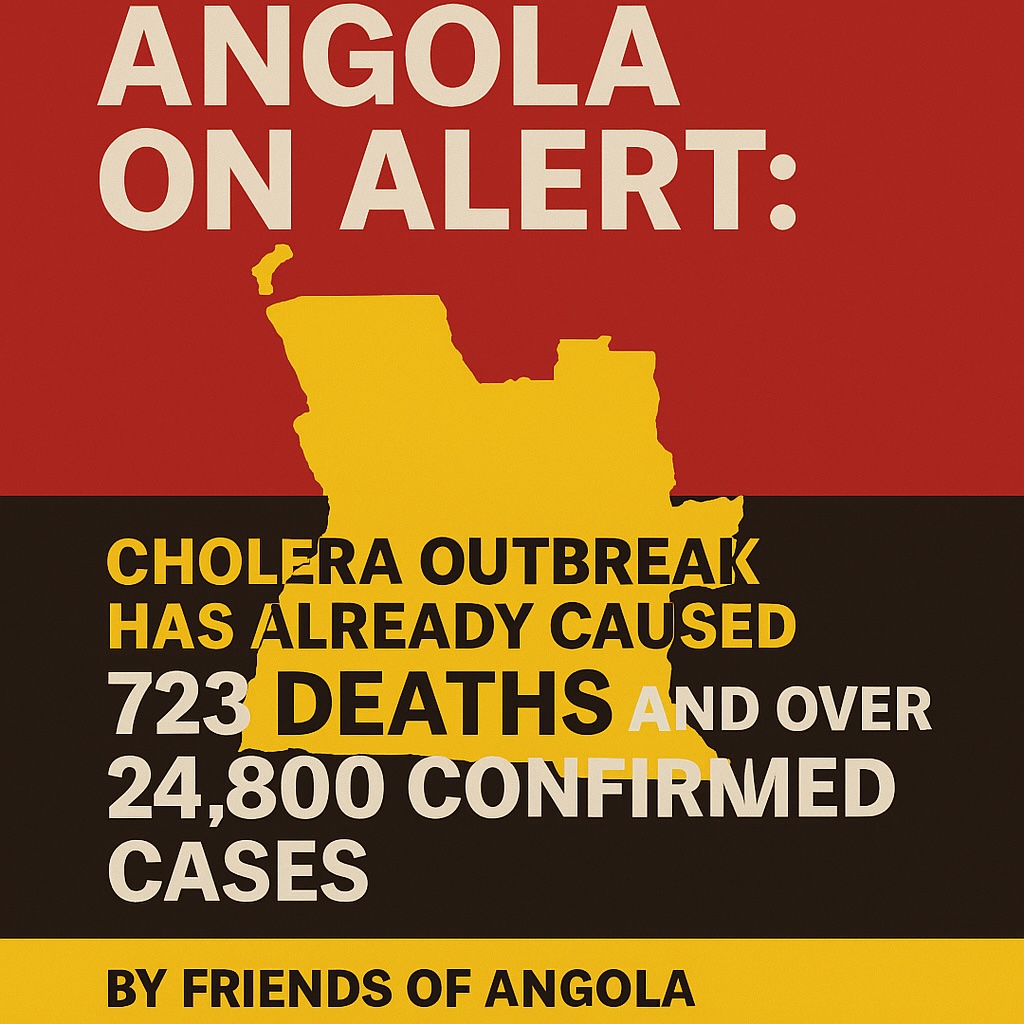Luanda, June 8, 2025
By: Friends of Angola
The cholera outbreak affecting Angola since January 2025 continues to pose a serious threat to public health, despite recent signs of slowing down. As of June 5, the country had recorded a cumulative total of 24,810 confirmed cases and 723 deaths related to the disease, according to data released by official sources and international organizations such as the World Health Organization (WHO) and Novo Jornal.
Declining Trend in Cases
Although the overall numbers remain alarming, recent data points to a possible decrease in the epidemic’s intensity. In the first days of June, the following figures were reported:
-
June 4: 133 new cases and 2 deaths (Cuanza Sul and Namibe)
-
June 5: 141 new cases and 3 deaths (Cuanza Norte, Namibe, and Huíla)
The gradual decline in new infections is being interpreted by health authorities as a positive, though fragile, sign of the effectiveness of current containment measures.
Geographic Reduction of the Outbreak
Another encouraging indicator is the shrinking number of provinces with active outbreaks. While 18 provinces were previously reporting new cases, that number has now dropped to six to eight, indicating a significant advance in controlling the spread.
On June 4, new cases were recorded in the following provinces:
-
Cuanza Sul (52)
-
Namibe (47)
-
Huíla (17)
-
Luanda (6)
-
Lunda Norte (4)
-
Benguela (3)
-
Icolo e Bengo (3)
-
Bengo (1)
By June 5, the number of provinces with new cases had dropped to just six, showing a clear downward trend in the epidemic.
Angola Among the Most Affected Countries in Africa
Angola remains one of the four African countries most severely affected by the current cholera outbreak, alongside the Democratic Republic of Congo, Sudan, and South Sudan. According to the WHO, these four countries together account for 83% of cases and 92% of deaths from cholera on the continent.
Current Situation Analysis
The data suggest a potential slowing of the outbreak, supported by:
-
A consistent decrease in new cases and deaths
-
A reduction in the geographic spread of the epidemic
-
Strengthened institutional response at both provincial and national levels
Nevertheless, the seriousness of the situation remains: more than 24,800 infections and 723 deaths reflect the scale of the challenge, demanding continuous epidemiological surveillance and a strong, multisectoral response.
Pathways to Consolidate Progress
To ensure that recent gains are not reversed, public health experts and international organizations recommend:
-
Reinforcing epidemiological surveillance, with a focus on provinces still affected;
-
Maintaining and expanding WASH interventions (water, sanitation, and hygiene);
-
Scaling up oral vaccination campaigns in high-risk communities;
-
Strengthening the capacity of local health centers, including equipment, supplies, and technical training;
-
Improving epidemiological data collection and analysis, ensuring systems can detect and respond rapidly to new outbreaks.
The cholera outbreak in Angola continues to demand urgent attention and action. While the most recent data brings hope of stabilization, any premature relaxation of measures could lead to new infection clusters. Consolidating progress and maintaining collective commitment are essential steps in overcoming this public health crisis and preventing future epidemics.
For more information and updates, the public is advised to follow official communications from the Ministry of Health of Angola and its partner organizations involved in combating the outbreak.

